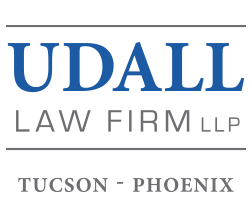
Beneficiary Deeds are useful tools in estate planning. A Beneficiary Deed is provided for by Arizona Revised Statutes 33-405. Simply put, it means that real property passes automatically at death to the people designated as beneficiaries in the deed. It’s much like joint tenancy with one improvement: the Beneficiary Deed does not pass an immediate interest. (A joint tenant can transfer his/her interest or it can be taken by creditors.) A Beneficiary Deed can be changed or revoked at any time by the owner.
When properly used, a Beneficiary Deed can be an efficient tool. When things go wrong, it can be a mess as illustrated by this case. One of the dangers of a Beneficiary Deed is that all the people who receive the property at the owner’s death may not agree as to what to do with the real property after they receive it.
In a recent case, a Beneficiary Deed was created by a father for his five children. The father died leaving a free and clear house to his four surviving children and the adult child of a deceased child. Three of the beneficiaries wanted to sell the property. After many attempts at contact, two of the Beneficiaries would not respond.
I solved the problem by initiating a Partition Action provided by the Arizona Revised Statutes 12-1211. This requires filing a lawsuit in the Superior Court, in which the real estate is located, obtaining the appointment of a “commissioner” to sell the property and confirming the sale through the court.
In this case, the property was sold, my clients were reimbursed from the sale for expenses (such as taxes and upkeep) they had paid on the real property, their attorney fees and their share of the proceeds. The attorney fees did reduce the proceeds from the sale so all parties had to bear the cost of the court action to some degree. But had a Partition Action not been filed, the clients would not have been able to sell the property.
Jeffrey M. Neff is a real estate specialist certified by the Arizona Board of Legal Specialization. He has extensive experience in real property transactions and litigation including purchase, sale, lending, eliminating title problems, easements, quiet titles, partitions, foreclosure, workouts, real estate litigation and many other areas of commercial real estate.

